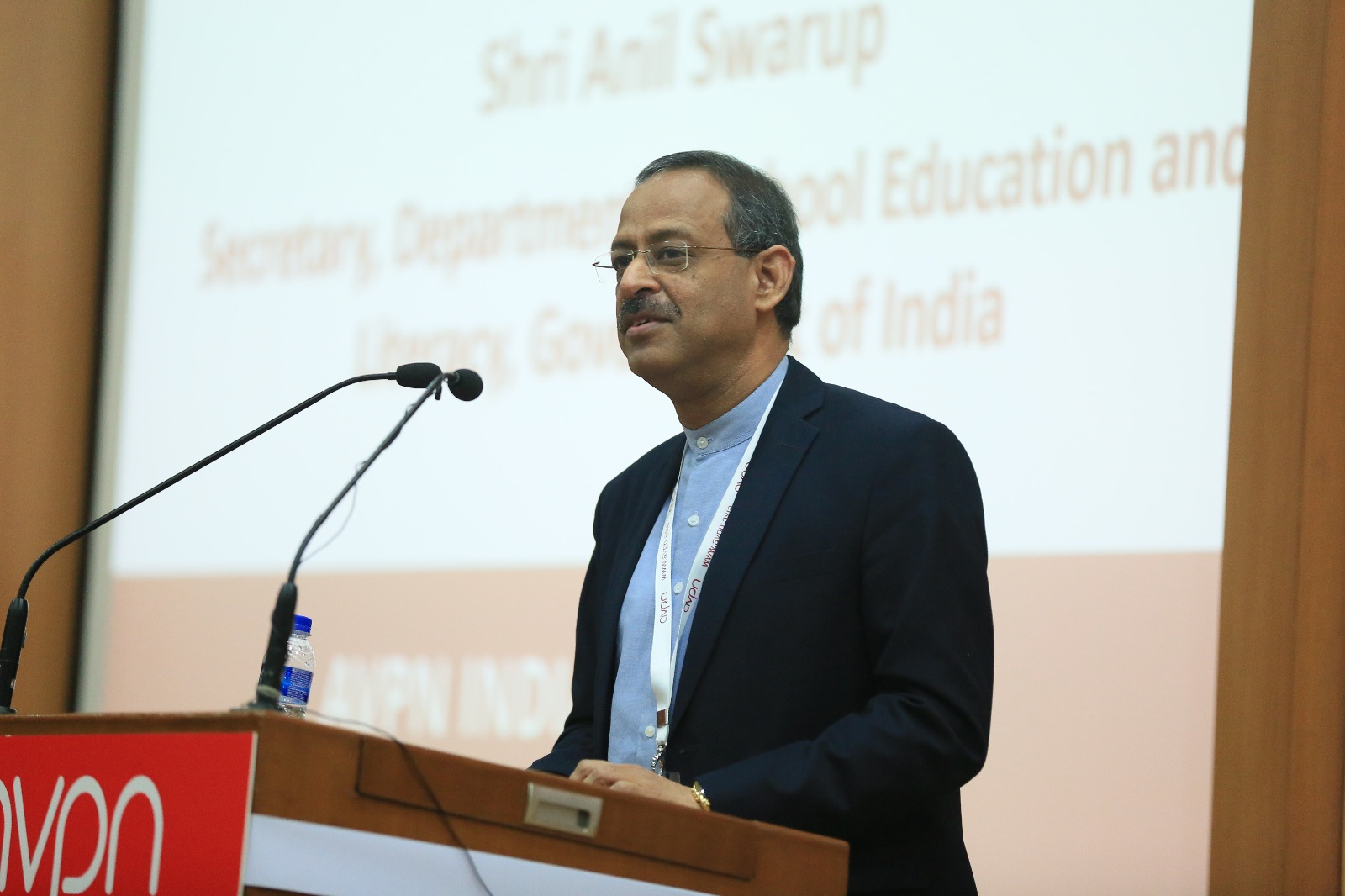AVPN India Summit 2017 saw the presence of close to 250 thought leaders, practitioners, and innovators who are in the education system in India. The theme presented was “Investing for Impact in Education.”
Anil Swarup, Secretary, Secondary Education & Literacy, MHRD, GOI, and Nand Kumar, Principal Secretary, Department of Education and Sports, Govt of Maharashtra, private funders including Unitus Capital and Kaizen Private Equity, and local non-profit organisations like Muktangan and iPRIMED, shared their insights as thought leaders, thus paving the way toward strategic deployment of capital into the education system.
Anil Swarup, in his keynote address, shared best practices in education from across India and stressed on the need to adopt them to scale. Speakers from civil society, private funders, and the government expressed alike, “The platform is helping to facilitate essential integrations amongst various critical stakeholders and overcome constraints that often come with implementation and outcomes.”
The Summit ranged with topics from innovative technological approaches to education, impact measurements and evaluations, to innovative hybrid approaches to funding social impact. There is no one answer to improve the quality of education in India; in fact, it has shown that the whole spectrum of factors and social investment has to be considered to enable more effective strategies.
The Funding Education with Impact Report was released. A guide for investors to ascertain where the critical gaps are in order to deploy funds and resources accurately and maximise impact. The Report examines different education segments and age groups in India, which runs the spectrum from Early Childhood Education (ECE) to vocational education, and inclusive education.
“India has achieved near universalisation with 97% of 3-18 year olds being in some types of education,” says Kevin Teo, Managing Director of AVPN Knowledge Centre. “However, gaps persist in various education segments, signifying the need for more targeted interventions.”
Insights from the report showed that while education is one of the most funded causes in India, few models have achieved scale, and quality remains a pressing issue. Holistic development is not given due attention and as such, access to education has not been equitable, and teacher shortages have impeded quality education delivery. To remedy these gaps, the Report observes the critical need for relevant curriculum design, leadership development, and ecosystem interventions that will go a long way in driving the quality and sustainability of the education sector.
Informed by the Education Report, early learning in affordable private schools in urban India has been identified as an underserved opportunity. With the collective that utilises funding from philanthropic foundations and corporate CSR in an impactful and targeted manner, AVPN plans to improve the quality of education and early learning outcomes for low-income children in urban India.
“This is an opportunity for the full spectrum of social investors from foundations to corporations, impact funds to incubators to connect around common causes,” says AVPN’s CEO, Ms. Naina Subberwal Batra. “These multi-sector collaborations are the key driver to address social gaps and drive deeper impact.”
Thank you for reading the story until the very end. We appreciate the time you have given us. In addition, your thoughts and inputs will genuinely make a difference to us. Please do drop in a line and help us do better.
Regards,
The CSR Journal Team

